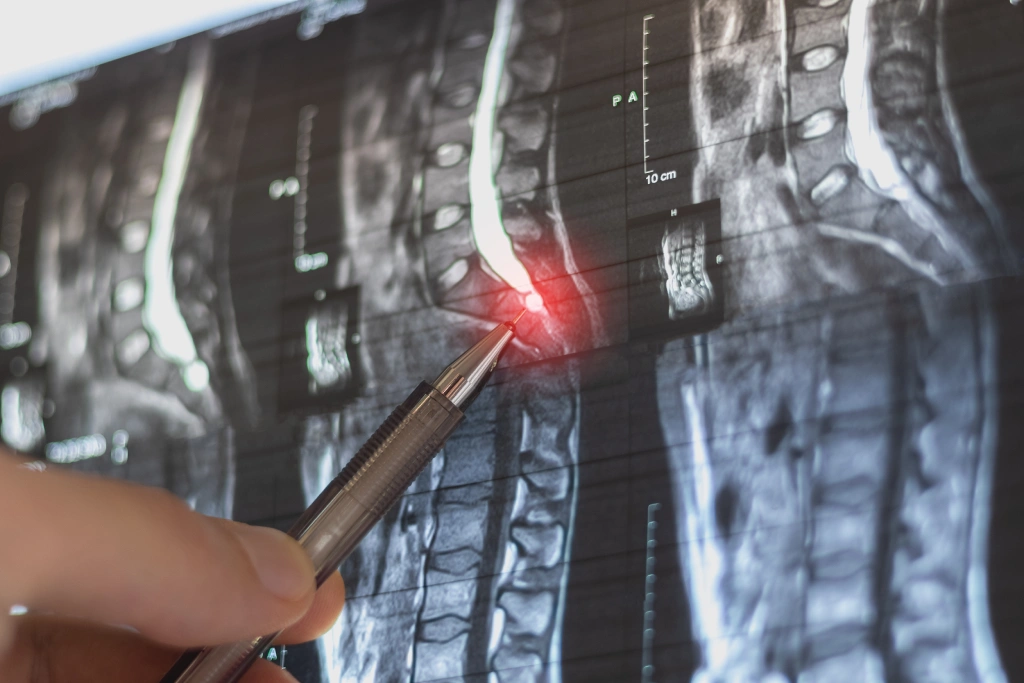May 9, 2025 | personal injury Claims
Psychological Harm and Personal Injury Claims
Table of Contents
Being in a motor vehicle accident (MVA) can be traumatizing, both physically and psychologically. Sadly, it is very common for people injured in an MVA to have symptoms of anxiety, depression, and post-traumatic stress, which can have a profoundly negative impact on that person’s life. Our clients often ask: how are my psychological injuries assessed and compensated in my MVA claim?
How To Identify Emotional and Psychological Damages After an Accident
Although it can be normal to have some increased stress after an MVA, it is critically important to discuss all of your MVA-related mental health and psychological symptoms with your doctor, or other medical professional, so they can document your recommended assessments and treatments to help address your symptoms.
Only you can truly know your own mental health and the effects the MVA has had on you. So, you should make efforts to note and report any symptoms that occur after the MVA to your doctor. Sometimes, you don’t realize that your current psychological symptoms, such as increased irritability, are having serious effects on your life and personal relationships. Symptoms of psychological harm can include:
- feeling tense;
- feeling irritable;
- restlessness;
- difficulty concentrating;
- lowered mood;
- fear of impending danger;
- feeling weak or tired;
- having avoidant behaviours;
- worrying;
- lowered appetite;
- loss of interest in activities;
- feeling hopeless, pessimistic, guilty, or worthless;
- memory problems;
- thoughts of self-harm;
- hyperarousal or hypervigilance;
- social isolation;
- rumination;
- flashbacks; and
In addition to the above, there can also be physical symptoms of psychological harms such as:
- sweating;
- trembling;
- abdominal distress;
- heart palpitations;
- nausea;
- difficulty sleeping;
- rapid breathing;
- experiencing dizziness or light-headedness; and
It is important that you don’t downplay your psychological symptoms, and that you ensure that you document, report, and seek treatment for any of the above MVA symptoms.
Collecting Evidence to Prove Mental Health Effects in Court
In the court litigation process, we must rely on evidence to prove the damages that resulted from the MVA. For mental health and psychological effects, this evidence typically comes in the form of your doctor’s notes, letters from your therapist or counsellors, mental health assessments, or other treatment records. It could also take the form of your personal notes or journalling following the accident, recording your mental health symptoms over time. Friends, family, and even people who don’t know your personal struggles, such as co-workers, may still be able to provide evidence about the effect of the accident on your ability to perform your job duties or on other changes noticed in your personality.
Saadati vs. Moorhead, a case before the Supreme Court of Canada appealed by Preszler Injury Lawyers’ own Dairn Shane and Joseph Fearon, discusses what types of evidence are required to prove a mental health injury from an MVA. In that case, the lower trial court had awarded damages for mental health injury as a result of the testimony of people who knew the injured person before and after the MVA and who testified of the changes that took place in their personality in the aftermath.
On appeal to the British Columbia Court of Appeal, this was reversed, with them finding that mental health injury requires expert evidence of a “recognizable or [recognized] psychiatric illness.” The highest court in Canada, the Supreme Court of Canada reversed the Court of Appeal’s decision and restored the original trial judge’s decision. They further declared that an expert diagnosis is not required in order to claim mental health damages from an MVA. However, they state that the damages need to be more than the simple upset and annoyance that can come from being involved in an MVA, stating “(c)laimants must, therefore, show much more – that the disturbance suffered by the claimant is ‘serious and prolonged and rise(s) above the ordinary annoyances, anxieties and fears’ that come with living in a civil society.”
Simply put, Saadati sets out that an expert diagnosis of a recognizable psychiatric disorder, though helpful, is not required in order to recover damages for mental health injuries.
The most important thing for you to do, as a person injured in an MVA who is suffering from mental health injuries, is to ensure proper documentation of your mental health symptoms following the MVA. This includes:
- reporting symptoms to your doctors, therapists, or counsellors;
- recording your own feelings in a mental health journal;
- possibly discussing your mental health challenges with friends or family; and
- working with your mental health professionals to ensure proper documentation.
Working With Therapists and Psychologists for Credible Documentation
It is important to advocate for your physical and mental healthcare needs. We support you in discussing all of your MVA injury concerns with your doctors and seeking appropriate treatments and assessments.
All the documentation created by everyone in your medical team, including your psychologists and therapists, if they are relevant and material to your MVA injuries, could be scrutinized by the courts in pursuing your injury claim.
Sometimes, therapists and/or psychologists, in addition to your doctors, physical therapists, or other medical professionals, may not take proper, or legible, notes about your visits regarding your accident injuries.
It is important to emphasize the need for good record-keeping related to your accident. One of the advantages of hiring a law firm that specializes in personal injury law, such as Preszler Injury Lawyers, is that we can communicate with your doctors about the litigation process and help them understand the importance of good recordkeeping.
Overcoming Defence Strategies That May Downplay Psychological Harm
We at Preszler Injury Lawyers have helped clarify that Canadian law will not draw unfair distinctions between mental and physical injuries, and that you deserve fair compensation to recognize the mental health injuries you have suffered as a result of personal injury claims.
The defence, the negligent parties and their insurers, will try to use different strategies and approaches that could try to minimize and/or separate your mental health injuries from their negligent actions.
Ultimately, your claim will still rely on evidence to prove the damages related to your injuries. The evidence for your specific claim will be unique and could have legal issues that the other side will try to point out to avoid responsibility for your injuries. Legal issues like “causation” (what caused the injury, the negligence or actions of the defendants?) or “mitigation” (did you as an injured person do what was reasonable in seeking treatment for your injuries and trying to minimize your losses?) will be emphasized by the other parties to see if they can reduce their obligations to pay for your injuries.
At Preszler Injury Lawyers, we have experience and expertise in responding to the defence’s tactics. We help guide our clients through the litigation process to ensure the evidence for their claim is as strong as it can be. We are able to advise our clients about their responsibilities under the law and ensure they take the appropriate steps to mitigate their loss and properly document their injuries to avoid issues with causation.
Sometimes, when it comes time to settle your claim, it will still face legal challenges despite the best efforts you made to protect your interests. In those cases, it is important to have a strategy to overcome the tactics that we know will be used by the other side. We at Preszler Injury lawyers have experience in dealing with the other side fiercely, but fairly, to ensure we can overcome the issues that a case can face and get you the full and fair compensation you deserve.
Compensation Available for Long-Term Emotional Trauma in Alberta
The law around compensation for mental health injuries and long-term emotional trauma is constantly evolving, but has come a long way from decades ago, when mental health issues might have been dismissed or diminished in some past court decisions.
Although you can expect to be able to recover damages for your mental health injuries, the amount can vary significantly and will be considered in conjunction with your physical injuries to determine fair compensation. The courts will consider factors such as the severity and duration of your mental health challenges, and the effect they have on your day-to-day life and ability to participate in work, recreational, or social activities.
Call Us to Discuss Your Alberta MVA Mental Health Claim
If you have suffered from mental health injuries resulting from a personal injury claim, please give us a call at Preszler Injury Lawyers for a free consultation about your claim. Our toll-free 24-hour line is at 1-888-494-7191. We look forward to hearing from you.
Written by Joel McLeish
Personal Injury Lawyer
Lawyer Joel McLeish’s practice focuses on personal injury claims, including motor vehicle accident claims, slip and fall claims, and long-term disability claims.
More personal injury Topics
Here’s more information on personal injury related topics that we think you might find helpful.

personal injury
|
September 3, 2025
Understanding Spinal Cord Injuries
Spinal cord injuries can be life-altering. Because the spinal cord carries signals between the brain and the rest of the body, damage to it often…

personal injury
|
September 3, 2025
What Is Post-Concussion Syndrome?
Most people think of a concussion as a temporary injury. With rest and proper care, symptoms often improve within a few weeks. But for some,…

personal injury
|
June 5, 2025
Catastrophic Injuries in Alberta
Catastrophic injuries are very serious injuries that impose lasting consequences. For legal purposes, catastrophic injuries are defined in Alberta as permanently damaging to the victim’s…
Speak With Our
Legal Team for FREE
Find Out if You Have a Case in Under 5 Minutes
Speak to a Lawyer Now!
We’re here to help.
